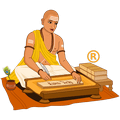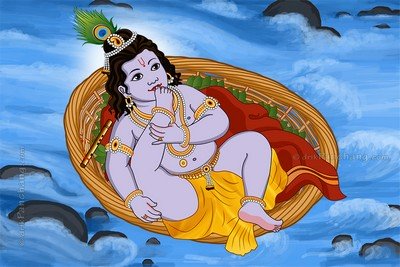













Notes: All timings are represented in 24+ hour notation in local time of Columbus, United States with DST adjustment (if applicable).
Hours past midnight are higher than 24:00 and fall on next day. In Panchang day starts and ends with sunrise.
Devotees, who observe fast on Janmashtami, should have the only single meal a day before Janmashtami. On fasting day, devotees take Sankalpa to observe a day-long fast and to break it on the next day when both Rohini Nakshatra and Ashtami Tithi are over. Some devotees break the fast when either Rohini Nakshatra or Ashtami Tithi is over. Sankalpa is taken after finishing morning rituals and the day-long fasting begins with Sankalpa.
The time to perform Krishna Puja is during Nishita Kaal which is the midnight as per Vedic time-keeping. Devotees perform detailed ritualistic Puja during midnight and it involves all sixteen steps which are part of Shodashopachara (षोडशोपचार) Puja Vidhi. Please check Krishna Janmashtami Puja Vidhi which lists all Puja steps for Janmashtami along with Vedic Mantra to perform the Puja.
No grains should be consumed during Janmashtami fasting until the fast is broken on next day after Sunrise. All rules followed during Ekadashi fasting should be followed during Janmashtami fasting also.
Parana which means breaking the fast should be done at an appropriate time. For Krishna Janmashtami fasting, Parana is done on next day after Sunrise when Ashtami Tithi and Rohini Nakshatra are over. If Ashtami Tithi and Rohini Nakshatra do not get over before Sunset then fast can be broken during the daytime when either Ashtami Tithi or Rohini Nakshatra is over. When neither Ashtami Tithi nor Rohini Nakshatra is over before Sunset or even Hindu Midnight (also known as Nishita Time) one should wait to get them over before breaking the fast.
Krishna Janmashtami is also known as Krishnashtami, Gokulashtami, Ashtami Rohini, Srikrishna Jayanti and Sree Jayanthi.